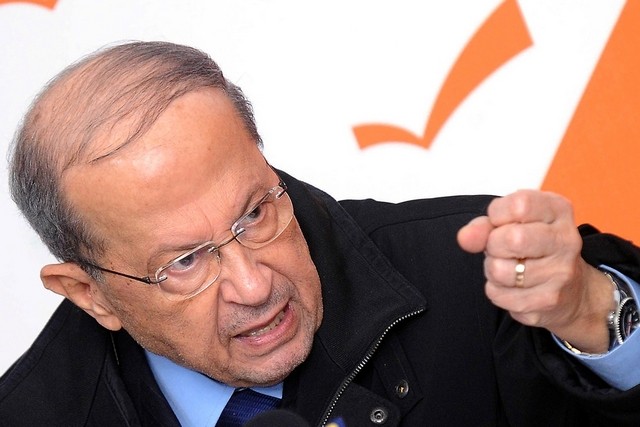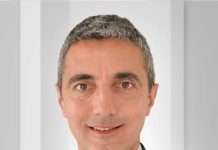Hizbollah blocks the long search for a president
Michael Young/The National/October 19/16
Lebanon is rife with speculation that former prime minister Saad Hariri will soon endorse Michel Aoun for Lebanon’s presidency, possibly opening the way for his election and an end to the presidential vacuum that has been in place since May 2014.
If that occurs, there are questions about how Mr Aoun’s political partners will react. That is why Mr Hariri could be engaging in a risky venture, at a time when his political fortunes are at a low.
Many observers regard the presidential void as the work of Hizbollah, Mr Aoun’s main ally. While the party officially backs Mr Aoun, its real intention could be to keep constitutional institutions in limbo until it can impose a modification in the political system that benefits the Shia community in general and Hizbollah in particular. This it probably hopes to do by leveraging a victory in Syria to demand more of a share of power in Lebanon.
If this interpretation is true, Mr Aoun’s election now could represent a temporary obstacle to such a scheme. His election could revive the presidency, allow institutions to function again, and make it more difficult for Hizbollah to impose its preferences on the state, in particular constitutional amendments that would allow it to advance its political agenda.
That is the theory at least. But a more pessimistic reading may be truer. Hizbollah has many ways of preventing it from actually taking place, even if Mr Hariri’s support potentially grants Mr Aoun a parliamentary majority (parliament elects presidents in Lebanon).
For instance, it can do so by working through its main ally Nabih Berri, the Shia parliament speaker, who has a sizeable bloc of his own. Mr Berri has declared he would not favour Mr Aoun. If there is an open election, Mr Berri would very likely vote for Mr Aoun’s rival, Sleiman Franjieh.
That possibility, and the fact that Mr Franjieh may win in an open election, could be enough for Mr Aoun and his bloc not to attend an election session. They insist that they will continue to boycott parliament until there is a general consensus allowing Mr Aoun to win. If the Aounists boycott election sessions, Hizbollah and its allies will do so as well, prolonging the vacuum.
Then there is the question of Mr Hariri’s calculations. The only motivation for the former prime minister to back Mr Aoun is that by doing so he will be eventually be named prime minister. The revival of his political fortunes would allow him to address the financial difficulties he faces by obliging his Saudi sponsors to come to his assistance, which his appointment as head of government would facilitate.
However, Mr Hariri should also consider his support in the Sunni community, where Mr Aoun is especially unpopular, and regarded as a tool of Hizbollah. Many in the former prime minister’s Future Movement oppose endorsing him for the presidency. Mr Hariri is in a difficult position. In striving to resurrect his political fortunes, he may alienate his own community, where he has already lost much sympathy.
Complicating matters were reports this week that Syria opposes Mr Hariri’s return to office. The regime of Bashar Al Assad still has influence over Lebanese politics. This Syrian opposition may have been a way of discouraging Mr Hariri’s endorsement of Mr Aoun, therefore a way of perpetuating the vacuum.
The real question is, when would Mr Hariri be appointed prime minister? The reason is that a presidential election would soon be followed by parliamentary elections, which have twice been delayed and are scheduled for next summer. Mr Hariri has no incentive to serve as prime minister before the elections, because the time is too short, while a poor performance in the elections could undermine his chances of being appointed afterward.
Mr Hariri’s endorsement by itself does not necessarily ensure a victory for Mr Aoun. Furthermore, he may pose conditions for his backing that create more openings for Hizbollah to block the election. Mr Hariri, in making one concession after the other on Mr Aoun, is opening himself up to a situation in which he discredits himself politically, without anything in exchange.
This may be precisely what Hizbollah wants. The party would be delighted to see Mr Hariri humiliated and Lebanon continuing without a president. In that way the party could hit two birds with one stone. However, the real question is how Mr Aoun would react. He has spent decades pining to be president, and to be thwarted yet again would be a major blow to him.
Hizbollah doubtless feels that Mr Aoun’s margin of manoeuvre is too limited to create a backlash against the party. It could be right, but it must also consider something else. If it eventually wants to alter the system to its advantage, the obstruction game should not become too obvious, or it might alienate Mr Aoun permanently.
Michael Young is a writer and editor in Beirut



















